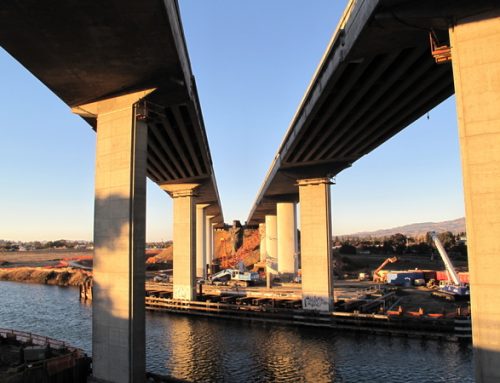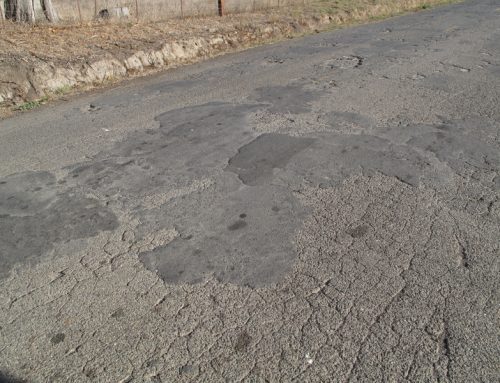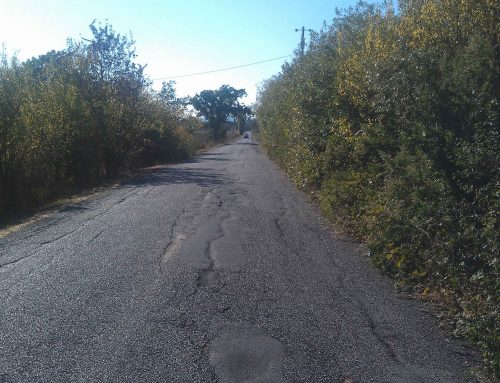Facing political pressure from city officials and increasingly uncertain prospects at the ballot box, Sonoma County has put the brakes on a plan to pursue a quarter-cent sales tax measure in November to fix the county’s crumbling road network.
In a surprising move Tuesday, the Board of Supervisors agreed to put off its proposed tax measure until a special election in March, when it will not be competing with seven other tax proposals before voters this fall. The special election has its own risk of low voter turnout, however, and is expected to cost the county $600,000, twice the amount of a countywide measure on the November ballot.
Tuesday’s about-face came at the urging of Supervisors David Rabbitt and Mike McGuire, the original architects of the county’s road repair and sales tax plan. After meeting with stakeholders last week, the pair said they concluded the timing wasn’t right for the county proposal.
“There is something to be said about being deliberate and taking measured steps to build broad support and involve as many groups as possible,” said Rabbitt, the board chairman. “We don’t want to do anything half-baked or with half-effort. If we’re going to do something, we’re going to do it right. That’s more important than doing it right now.”
The message was delivered at the start of hearing that, based on the board’s discussion last week, was expected to be largely perfunctory and result in formal approval of the tax measure. Instead, the comments by Rabbitt and McGuire touched off a heated three-hour board debate that laid bare the political calculus behind the move to postpone the ballot measure.
Ultimately, the two supervisors convinced their reluctant board colleagues that the measure would have a better chance of success next year. They acknowledged that the rollout of the sales tax proposal, timed to meet the Aug. 8 deadline for ballot measures, was rushed after a county blueprint to deal with its $268 million road upkeep backlog was finished in June, months behind schedule.
“We brought this fast and furious after June,” Rabbitt said. “We have been working on roads for at least the past three years and we will continue our investment in roads. A (sales tax) measure is needed. I think people understand that.”
Since formally introducing the tax proposal last week to unanimous support from the board, McGuire said he and Rabbitt hosted 16 to 20 meetings with business, transit, environmental and labor groups as well as city council members. Petaluma has been vocal in its opposition to the county plan, saying it could scuttle the city’s own proposed one-cent sales tax measure. Santa Rosa officials also expressed concern with the plan, which would raise an estimated $537 million over 20 years to be distributed to the county and the nine cities.
“With any successful measure, we must be able to lock down any moving parts prior to hitting the ballot,” McGuire said. “There are moving parts that are not going to be settled prior to the deadline set by the Registrar of Voters.”
Supervisors Shirlee Zane and Susan Gorin, seemingly caught off guard by the shifting political winds, strongly supported moving forward with the November ballot measure and only agreed to compromise after assurances that the measure would not be put off later than March.
“What a difference a week makes, I guess,” Gorin said. “I don’t know how we can say it’s not time to go out in November to give our voters a chance to weigh in on our roads. I’m going to have a hard time explaining to our constituents, saying, ‘Sorry, we’re not ready yet.’”
Zane said that Rabbitt and McGuire had sold her last week on the November ballot measure. She contended it would be a mistake to put off what has been touted as the key funding piece in the county’s long-term plan to fix its 1,382-mile road network, consistently rated among the worst in the Bay Area.
“With all due respect, I don’t think that you made the case to suddenly put the brakes on,” she said. “I don’t think we can wait. I do trust the voters and I do trust that they want to put roads on the ballot.”
Supervisor Efren Carrillo, the swing vote in this case, raised the issue of competing tax measures on the November ballot. Cities and school districts are asking voters to raise taxes, and the county’s measure could be met by a hostile electorate that feels it is being asked for too much, Carrillo said.
“My fear is not whether voters want funding for roads,” he said. “My fear is that voters may look at the tax, compared to other taxes, and not vote on it based on its merits.”
The March ballot, when cities typically introduce measures, is currently empty, and the county would have the advantage of a longer campaign to reach out to voters and explain the benefits of the sales tax. But with no anticipated candidates up for election in March, the measure could suffer from low voter turnout, according to David McCuan, a Sonoma State University political scientist.
“The challenge for March is that three people will show up,” he said. “The county will have to make sure their supporters turn out.”
McCuan said that the supervisors’ apparent flip-flop — supporting a November ballot measure last week before punting on it Tuesday — could be a shrewd political move, showing that they are serious about improving roads, an issue that the county has taken much heat for in recent years, while at the same time relieving pressure from skeptical city officials concerned about the fate of their own tax measures.
It also avoids what could have been a costly loss at the polls, which could undermine the county’s strategy to address its road repair woes.
“The county needs political cover. That’s what you saw last week,” McCuan said. “I think what you see is election-year posturing, talking about moving the ball forward on transportation.”
On Tuesday, a dozen road-funding, transit, construction and environmental advocates echoed their comments last week, voicing support for the sales tax measure. Many said they would prefer to see it on the November ballot, but said they would help with the campaign for the March 3 election.
“We prefer going sooner rather than later, but we understand the political calculus,” said Craig Harrison, co-founder of Save Our Sonoma Roads, an advocacy organization. “We are enthusiastically behind this measure. If it is delayed, we will support it.”
Joshua Pinaula, president of the Santa Rosa Junior College Associated Students, wondered why the county was pulling back after pushing the need for the sales tax measure.
“Maybe our ducks aren’t in a row, but why aren’t they?” he said. “I keep hearing everyone saying that we need this. I don’t know why we don’t do it now. It’s a bit confusing.”
The ballot package the board is set to put on the March ballot includes a general tax that would require a simple majority to pass and an accompanying advisory measure that would state voters’ preference that the revenue to go for roads.
The county and each city would be able to craft its own advisory measure. The county’s measure calls for 10 percent of the tax revenue to go toward free bus passes for students and veterans. Santa Rosa also plans to use up to 10 percent of the potential funds for transit. Petaluma would dedicate its revenue for widening Highway 101, among other priorities.
The board is scheduled next week to formally approve the tax package for the March ballot.
County officials plan to kick off an outreach campaign and form a steering committee within the next 10 days. Public meetings on the issue are planned for this fall.



